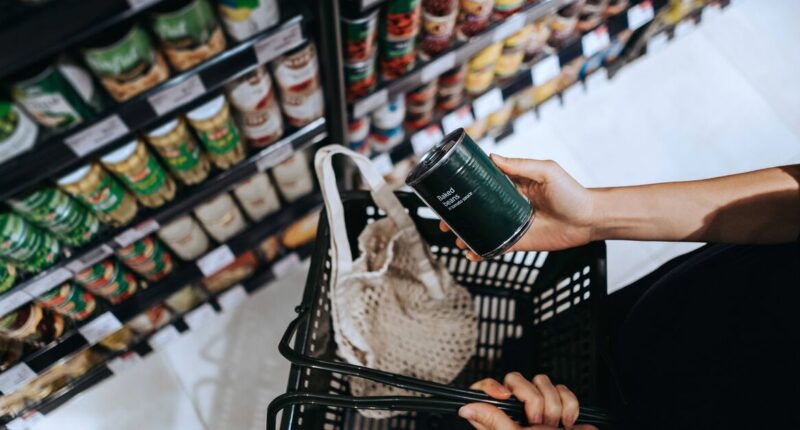Share this @internewscast.com
A medical professional has delivered a crucial warning regarding the hazards of eating food from damaged cans. These tins, often seen on supermarket shelves, may have been compromised during transport or accidentally dropped and replaced.
Dr. Ashley Ennedy, an environmental medicine specialist, firmly advises against purchasing such cans, citing significant health risks. “Dented cans may seem harmless, but they can actually pose a serious health threat,” she stated in a TikTok video. Dr. Ennedy elaborated, warning that consuming food from a compromised can could potentially lead to paralysis.
She explained, “When a can is dented, particularly around the seams, it can disrupt the airtight seal, allowing clostridium botulinum bacteria to flourish.”
This bacterium can generate toxins that attack the nervous system. Dr. Ennedy noted, “When these bacteria multiply, they can produce a substance known as botulinum toxin. Even a minuscule amount of this toxin can trigger botulism, a rare but possibly deadly form of food poisoning that impacts the nerves.”
Symptoms of botulism
Dr. Ennedy identified potential symptoms caused by the toxin, stressing the severity of the issue.
- Drooping eyelids
- Double or blurred vision
- A dry mouth
- Slurred speech
- Difficulty swallowing
- Difficulty breathing
- Weakness or paralysis of arms and legs
- Nausea and vomiting
“The frightening aspect is that you can’t detect it visually, by smell, or by taste,” she continued. “Your food will appear and taste perfectly normal, leaving you unaware of the danger.” She concluded her message with a warning: “If a can appears bulging, dented, or leaking at the seams or lid, discard it immediately—it’s not worth the risk.”
One shocked TikTok user responded: “Crazy how those cans are always the ones donated [to food banks].” Dr Ennedy retorted: “So true. Most donation centres do check for dents or bulging cans before giving them out, but it’s always good to double-check what you donate.”
Another person said: “It makes me so mad how many dented cans are on the shelves. I report it every time.” To which the doctor commended: “You’re totally right to report dented cans! Thanks for looking out for others!”
A third TikTok user asked: “Do restaurants have regulations about this? I can control at home, but wonder when I eat out.”
She asserted in reply: “Yes! Thankfully restaurants are not allowed to use swollen, bulging, or severely dented cans. They’re considered unsafe because of botulism risk, and health inspectors check for this. So if a can looks damaged, they have to toss it.”
Regarding botulism, the NHS concurs with the doctor’s advice, stating online: “As a result of high standards of food hygiene in the UK, the chances of getting food-borne botulism from food bought in this country are low. There’s a slightly higher risk if you produce your own food, particularly if this involves canning. But following food hygiene procedures and canning recommendations will reduce any risk.”
The NHS emphasises: “Do not eat food from bulging or damaged cans, and avoid eating foul-smelling preserved foods, foods stored at the incorrect temperature and out-of-date foods.”













